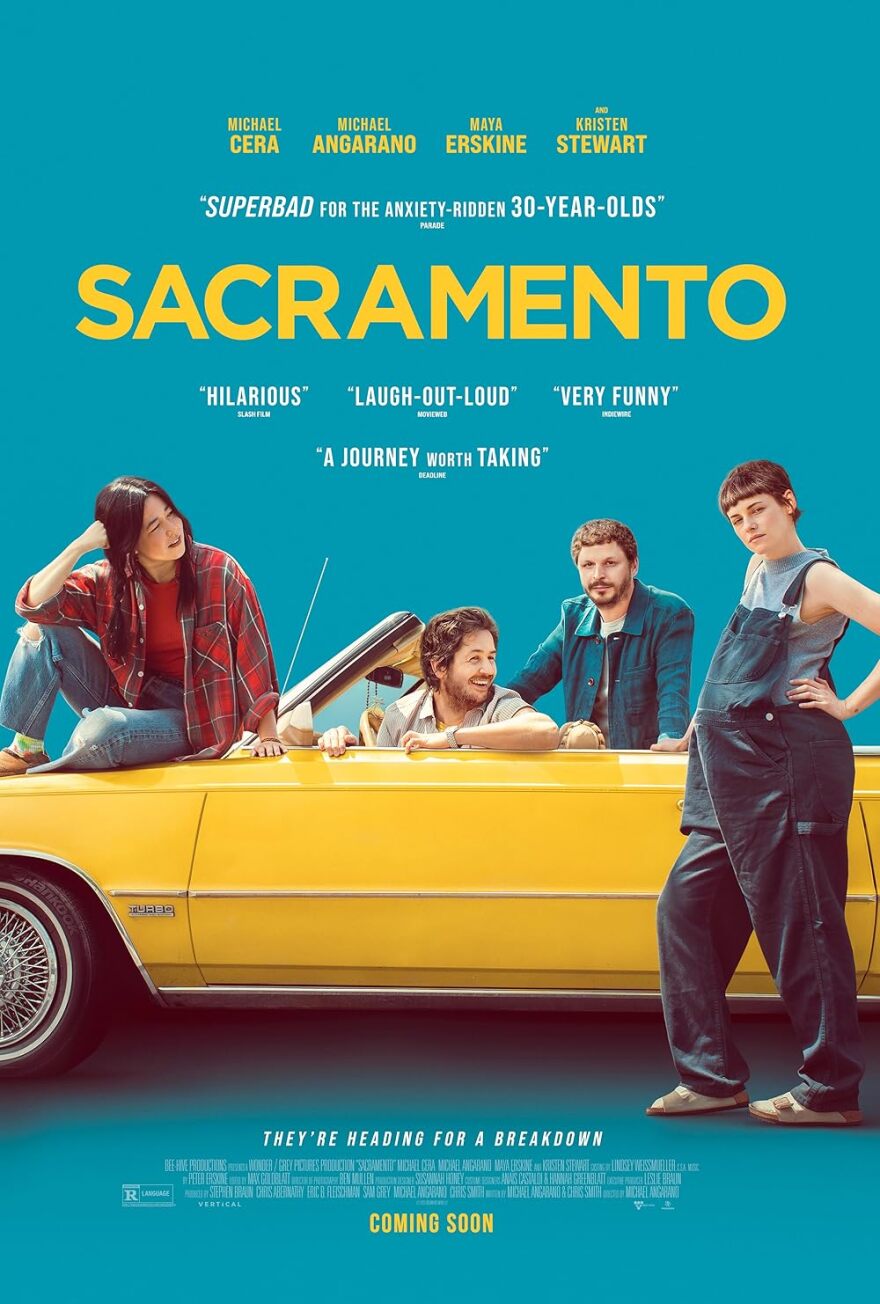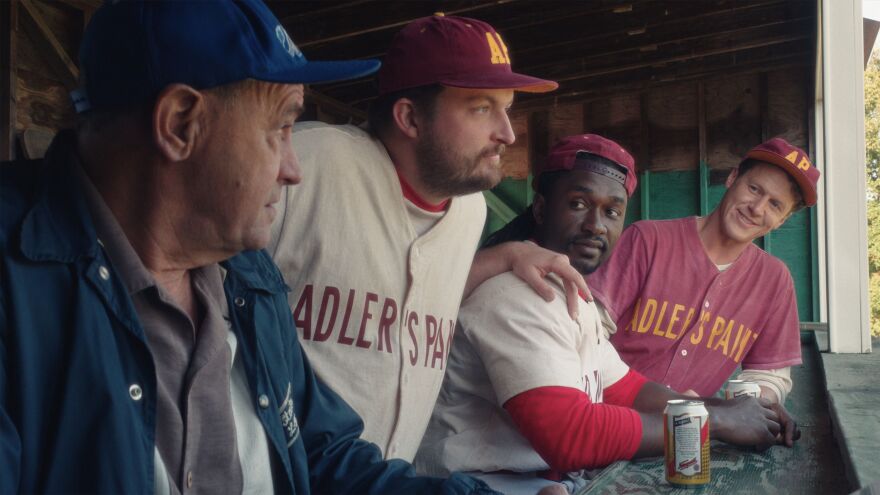Today on KIOS at the Movies, Joshua LaBure reviews and recommends two summer films that are now available on V.O.D. & Blu-ray, “Sacramento” and “Eephus.”
Sacramento

When I first saw the trailer for Sacramento, the new film from actor/writer/director Michael Angarano, I was excited to see something that evoked the indie dramedies I loved so much in the mid-aughts—films like Juno, Little Miss Sunshine, and others that once dominated art house theaters. But what I got was something even better.
Rather than leaning into pure quirk, Sacramento surprised me with its emotional honesty, mature performances, genuine hilarity, deeply felt tears, and a refreshing lack of pretense. While it borrows the structure of a buddy comedy, it’s filled with neurotic, sharp dialogue, introspection, and real adult vulnerability—the kind of small, resonant moments that stick with you.
The story centers on Rickey, a spontaneous and emotionally raw man still grappling with the recent death of his father. He convinces his old friend Glenn (played by Michael Cera), now a seemingly stable, soon-to-be father, to join him on a sudden trip from Los Angeles to Sacramento. Glenn’s pregnant wife (Kristen Stewart) surprisingly encourages him to go, and the journey pushes both men to confront their pasts and the uncertain futures ahead of them.
At its core, Sacramento is a film about aging and the way the anxieties of youth don’t simply vanish with time. The friendship at the center of the film is between two men who, on the surface, appear to be in vastly different life stages. But as the road trip unfolds, it becomes clear their fears, insecurities, and emotional struggles are strikingly similar. There’s a reason they’re friends—and Glenn’s instinct to push Rickey away feels rooted in the fact that he sees his own flaws reflected back at him. Rickey wears his chaos on his sleeve; Glenn buries his deeper.
Michael Cera is absolutely at his best here. He delivers plenty of laugh-out-loud moments that harken back to his earlier comedic work, but there’s a new level of confidence and emotional complexity in his performance. He’s never been funnier—or more human.
Michael Angarano, meanwhile, is perfect as Rickey. On the surface, Rickey is a total mess, but Angarano lets us see the depth and decency beneath the bad decisions. As a director and writer, he delivers a film that feels both deeply personal and impressively assured.
Kristen Stewart and Maya Erskine, though in smaller roles, bring a lived-in realism to their performances as two women—one a new mother, the other about to be—who are both quietly exhausted by the emotional labor they’re asked to carry.
And I really need to emphasize: this movie is funny. I genuinely don’t think I’ve laughed this hard in a theater in years. It felt good to laugh like that.
I loved Sacramento. It’s sharp, heartfelt, and deeply funny—a perfect film for a summer evening with friends.
Eephus

I’ve never considered myself a sports person, but I’ve always been drawn to films about baseball. A League of Their Own, Bull Durham, The Sandlot, and Ken Burns’ documentary series Baseball have all lingered with me over the years. What strikes me, whether I’m watching those films or simply watching a game, is that baseball is a slow sport. It takes its time—just like the cinema it inspires. That slowness, that space to breathe, is what I find so compelling.
Some of my favorite filmmakers—Ozu, Richard Linklater—are deeply interested in time: how it slips past us, how generations hand things down, how we learn to let go. Not coincidentally, many of them loved baseball. The sport mirrors their meditations on transience, ritual, and community.
The new film Eephus—named after the slow, arcing pitch in baseball that defies expectation—feels like the ultimate expression of those ideas. It centers on the final game of a small-town baseball league, played by a ragtag group of people from different generations and backgrounds, as they say goodbye to a beloved field that’s about to be turned into a school. On the surface, it’s a hangout film—very much in the tradition of Linklater—but beneath its humor and absurdity lies something quietly profound. There’s a deep yearning to be present, to hold onto a place and a set of relationships, even when those relationships are complicated or fraught.
There’s also, I think, a call to return to community. To be with people, in person, away from screens. To join a team, get outside, and feel grounded in a world that’s speeding up in ways that have left us—despite all our connections—more lonely than ever.
What makes Eephus so special is its ability to work on multiple levels. It’s a film about time. It’s a beautifully absurd comedy. It’s a character study. And if you let it, it will wash over you, linger in your mind, and stay with you long after the credits roll.
I hope Eephus finds its place among the great hangout films—Dazed and Confused, Clerks, American Graffiti—as well as among the great baseball films that capture something much deeper than the game itself.
Eephus is now available on V.O.D. & Blu-ray.




